Climate crisis, resource conservation, cost pressure: finding innovative answers through cooperation - EU project LIAISON investigated how practical solutions can be developed in and for agriculture
When farmers join forces with scientists and people from other professions, great potential often unfolds: mixed project groups can quickly develop innovative solutions to pressing problems, as the LIAISON research network found out.
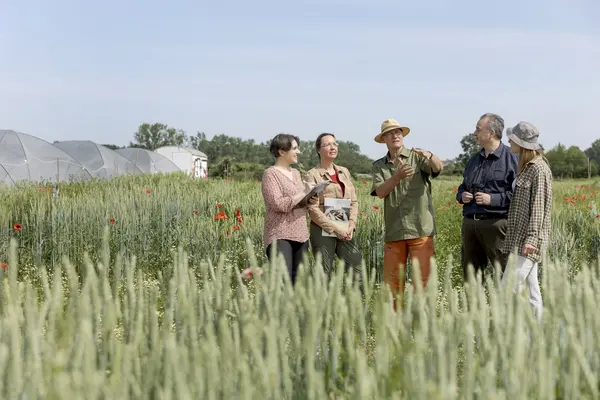
Foresight: joint planning for the field trial
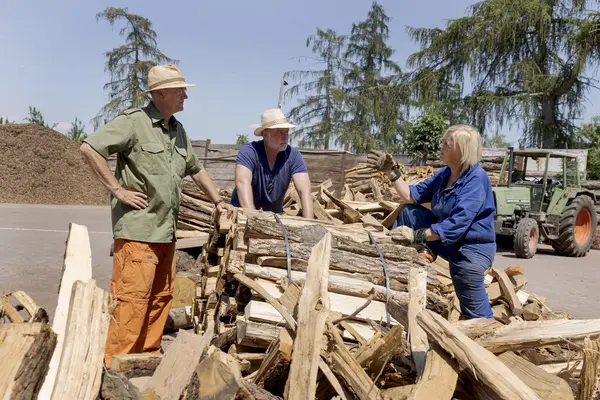
Cooperation between forestry operations and consulting - combined heat and power plant: example of wood utilisation
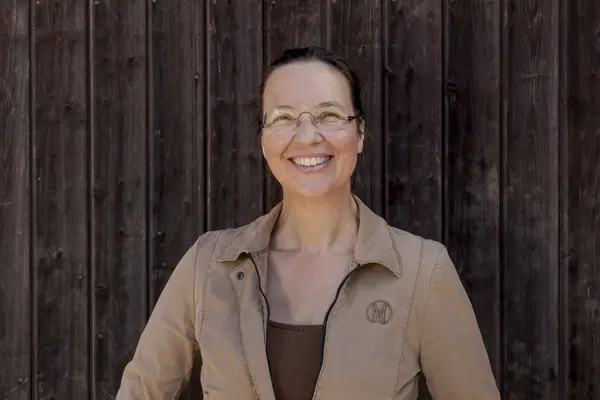
Dr Susanne v. Münchhausen, Coordinator of the of the EU project LIAISON at HNEE
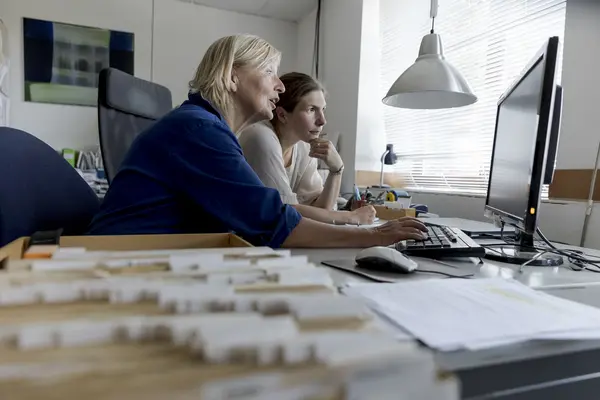
Regular monitoring of key data and financial administration of the innovation project
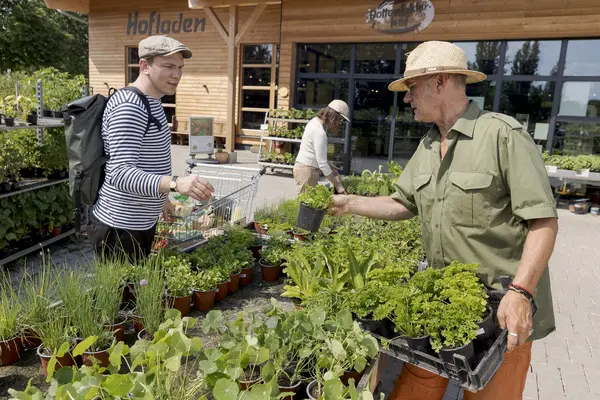
Personal exchange between producer and consumer, made possible by co-operation with the marketing company

Innovation for animal welfare with transparency on husbandry methods requires cooperation between all stakeholders along the value chain - example: mobile chicken farming
The aim of the EU-funded LIAISON project was to investigate "multi-actor projects" in which the participants work together to find answers to ecological, technical, organisational and social challenges - in practice for practice. LIAISON involved organisations and institutes from 15 European countries, coordinated by the Eberswalde University for Sustainable Development (HNEE) in the state of Brandenburg. Between May 2018 and April 2022, the teams analysed the cooperation between project groups from Norway to Portugal and from Ireland to Romania. Six guidelines on successful "cooperation for innovation" (co-innovation) have now been published in German:
6. Tools for evaluating and analysing the impact of co-innovation projects
The need for change in agriculture is enormous. "We can't carry on as before," says agricultural scientist and LIAISON coordinator Dr Susanne von Münchhausen (HNEE). She emphasises the urgency of breaking new ground. Many farms are under massive pressure. "The climate crisis, the coronavirus pandemic and the war in Ukraine are sending shockwaves through agriculture. We need quick, practicable solutions to help us adapt. This will only succeed if we utilise the full potential for innovation."
One of the project groups analysed reduced the CO2 emissions of its agricultural production. In Bulgaria, female farmers found new ways to market their home-processed tomatoes. In Lower Saxony, students worked with a company to design trendy juice and smoothie creations. In Poland, two committed women - mother and daughter - dared to set up a fish farm in a nature reserve, and in Italy, producers joined forces with consumers to set up vegetable co-operatives. These examples are just a few of LIAISON's 15 co-innovation ambassadors, each of whose stories is told in a short video with German subtitles. Another video shows the "LIAISON journey".
"To be successful, the mixed groups need the right tools, access to expert knowledge and funders and the willingness to critically examine their work again and again," explains project manager Prof Dr Anna-Maria Häring (HNEE). "What is needed is openness, the ability to learn, mutual understanding, appreciation and transparent and resilient working structures."
The groups must realistically assess their resources, possibilities and limits, be prepared for conflicts and take different interests and needs into account. For example, farmers often have to react to unforeseen events on their farms, while researchers may be able to proceed according to plan in the laboratory.
When people from different professions learn together, new knowledge is created. "It's really amazing what ingenious solutions have been found in the projects to make farming more sustainable. One example is a mower with a large working width that protects insects on the ground," says Dr Susanne von Münchhausen.
In addition to the six guidelines produced as part of LIAISON, 32 case study postersand the 16 LIAISON videos are available on the Internet.
In addition to the press release, an interview with the project coordinator and a project profile are also available.
Note on image material
The photos available here may be used for reporting purposes. Please note the copyright notice © HNEE / LIAISON2020 / Kösling, 2021